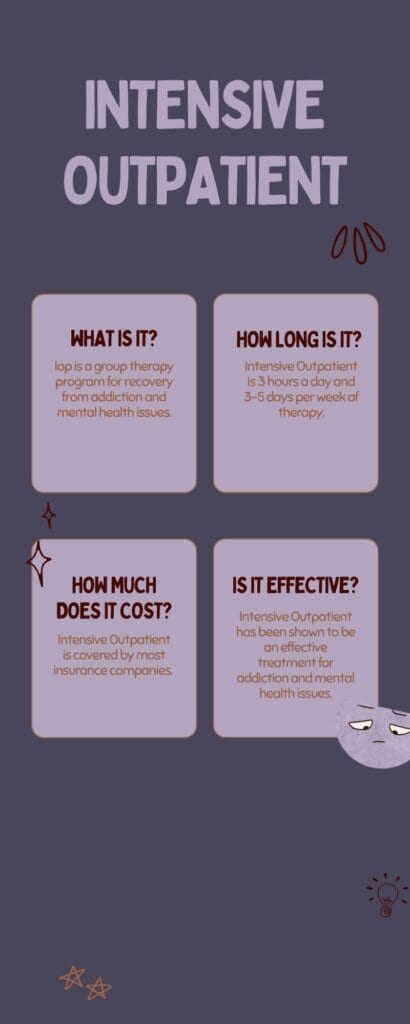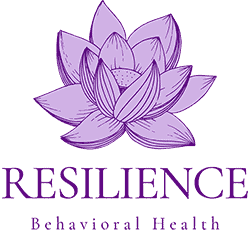Mindfulness-Based Stress Reduction in Massachusetts Mental Health IOPs
“Transform mental health outcomes in Massachusetts Intensive Outpatient Programs (IOPs) with the confirmed worth of Mindfulness-Based Stress Reduction, wellbeing, and fostering resilience.”
Mindfulness-based stress reduction, or MBSR in mental health, has increased power as a potentially active therapeutic strategy. Stress, anxiety, and other mental health concerns can be treated with MBSR, which originated from old-fashioned thoughtful techniques.
The program’s focus on developing present-moment awareness and nonjudgmental acceptance aligns with the overall objectives of intensive outpatient care.
Mindfulness performance is a valuable tool for individuals struggling with the difficulty of mental health illnesses, as IOPs work to provide effective and comprehensive treatment. The number of individuals involved in mindfulness, mantra-based, or spiritual meditation between 2012 and 2017 amplified from 4.1 percent to 14.2 percent.
Through mindfulness meditation and awareness, Mindfulness-Based Stress Reduction (MBSR) is a deliberate program intended to assist people in dropping nervousness, handling stress, and improving their general health.
This discussion explores the likely difficulties and compensations of MBSR application in Massachusetts Mental Health IOPs. It will also provide ideas into the changing field of mindfulness-based integration interventions in recent mental health maintenance.
Significance of Mindfulness-Based Stress Reduction:
Massachusetts, a leading state in creative mental health performance, comprehends the value of including MBSR in IOPs.
- In Massachusetts, Mindfulness-Based Stress Reduction (MBSR) is a significant basic that brings a transformative technique to address the complex needs of individuals living with mental health issues.
- IOPs allow persons to shape coping resilience and skills by requesting mindfulness practices like breathing and mindful meditation.
- It is a comprehensive technique for mental health, which MBSR reinforces as it forces the implication of treatment on both a physiological and psychological level.
- This integration indicates a devotion to groundbreaking care, advancing patient-centered mental health treatment toward a more thorough and efficient paradigm.
Many individuals showed that meditation improved their emotional well-being (86.4%), reduced strain or endorsed easing (89.4%), improved their general health (79.0%), and better quality of sleep (69.3%).
Integration Into The Iops:
An advanced strategy for complete mental well-being, integrating Mindfulness-Based Stress Reduction (MBSR), is being applied in IOPs. The program has an 8-week course with two to three hours of weekly education.
Integrating MBSR methods into pre-existing IOP structures creates a helpful environment that efficiently addresses the complicated interplay of mental health trials. This integration guarantees an inclusive treatment model that advances the contributors’ emotional control, resilience, and coping plans.
MBSR’s Constituent Parts Include:
MBSR is a multidimensional approach that includes gentle yoga, body awareness, and mindfulness consideration.
To rehearse mindfulness, contributors follow organized sessions highlighting present-moment awareness and nonjudgmental observation. Together, these basics support emotional equilibrium, decreased stress, improved mental clarity, and a feeling of control over one’s mental health.
It is often recommended that members practice mindfulness daily at home to set the methods they have learned in group sites.
Advantages for Mental Wellness:
Participants in Massachusetts Mental Health IOPs benefit most from MBSR. MBSR has been systematically proven to be operative in dropping anxiety, chronic stress, and depression symptoms. Individuals can shape psychological well-being and resilience by practicing mindfulness, which raises one’s consciousness of feelings and thoughts.
Adding MBSR to IOPs recovers the general effectiveness of mental health behaviors by giving participants the services they need to overcome problems and make a long-term retrieval plan.

Competent Teachers:
The accessibility of skilled teachers is vital to achieving MBSR within IOPs. Expert MBSR coaches who bring knowledge and experience in mindfulness practices are given importance in Massachusetts Mental Health IOPs. These coaches provide an encouraging and safe learning setting while supervising members through the program.
Their skill assists the program’s prospering by modifying mindfulness practices to fit each member’s needs, cheering a well-organized and modified approach to well-being.
Studies and Proof:
The efficiency of mindfulness-based stress reduction (MBSR) in mental health intensive outpatient programs (IOPs) has been confirmed by many studies led in Massachusetts. Studies constantly show that MBSR practices, like mindfulness meditation and yoga, dramatically lower participants’ levels of anxiety. Strong indication supports the beneficial properties of MBSR on mental health in overall emotional well-being and cognitive function.
These consequences deliver a robust foundation for the inclusion of MBSR in mental health treatment modalities and add to the cumulative body of investigation.
Community Assistance:
Mindfulness-Based Stress Reduction (MBSR) is applied to Mental Health Intensive Outpatient Programs (IOPs) in Massachusetts as part of a superior effort to back the community. By endorsing group contribution and communal mindfulness practices, MBSR aids members in developing a sense of community. This group-based plan recovers the healing setting, encouraging and helping improve mental health.
Additionally, MBSR gives individuals valuable tools for stress management, allowing them to make optimistic donations to their groups. Massachusetts endorses a complete method of mental health by integrating MBSR into IOPs, highlighting the assembly between community and individual well-being.
Benefits of Mindfulness-Based Stress Reduction:
Mindfulness-Based Stress Reduction has many noteworthy advantages. MBSR gives individuals tools to handle stress and recover mental health because it is based on consciousness and thought practices.
IOP contributors cultivate mindfulness in their ordinary lives, which declines their overall mental distress and their phases of anxiety. Through augmented self-awareness, the package assists people in dealing with problematic feelings in a healthy and current way.
Additionally, MBSR recovers general wellness and drops blood pressure, which has an optimistic influence on physical health. Even mindfulness practice principles improve cognitive concentration and functioning, which improves problem-solving and decision-making abilities.
MBSR becomes a critical element in the outline of Mental Health IOPs, fostering long-lasting emotional regulation and resilience. Individuals regularly report feeling more authorized and accomplished in contributing fully to their treatment; MBSR is a valuable supplementary plan for complete mental health care in Massachusetts IOPs.
Conclusion:
Enhancing therapeutic consequences by integrating Mindfulness-Based Stress Reduction (MBSR) into Massachusetts Mental Health Intensive Outpatient Programs (IOPs) is promising.
Based on available information, applying mindfulness practices can aid members in becoming stronger and healthier, controlling their emotions, and decreasing stress. IOPs have the potential to recover participants’ overall mental health and give them authority by providing them with valuable mindfulness methods.
Acceptance of MBSR in IOP settings has the potential to contribute to a more convenient and all-inclusive method of mental health care, which will eventually benefit patients and public mental health.
How can you access it right away?
Are you STILL looking for Mindfulness-Based Stress Reduction in Massachusetts Mental Health IOPs? Don’t look further.
We at Resilience Behavioral Health in Massachusetts are conscious of problems that you might feel while registered in an intensive outpatient program (IOP) for mental health. Through mindfulness-based anxiety reduction methods, our dedicated teams are here to back you and aid you on the track to resilience. We assure you that you are traveling with others in this race.
Your mental health is our top priority at Resilience Behavioral Health, where we propose a safe environment for growth and healing.
Let us support you in leading a more satisfied and well-balanced existence. We value your flexibility and are here to care for you at every turn.
Our Mindfulness-Based Stress Reduction (MBSR) program at Resilience Behavioral Health has received 5-star ratings and success stories demonstrating its effectiveness. Our tailored, evidence-based handling programs address each patient’s specific needs. Call 888.401.1179 to arrange a discussion and start your journey toward transformation.


